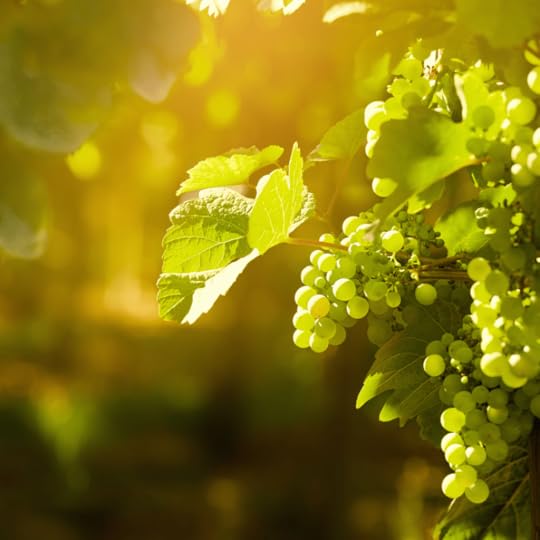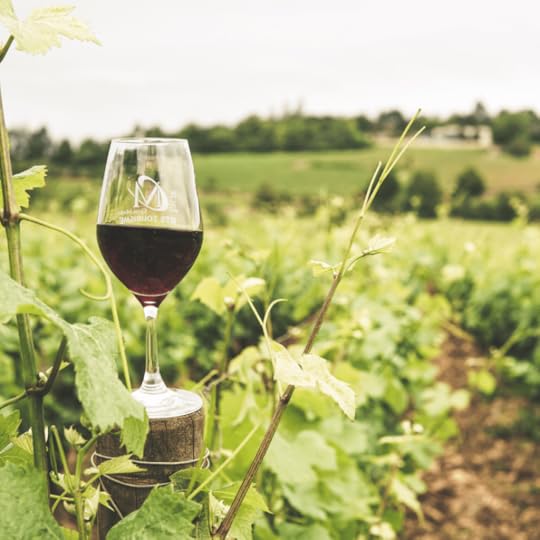From Soil to Sip: Why Biodiverse Wines Offer Superior Taste and Health Benefits
As consumers grow more conscious of the impact of their choices, there’s a new spotlight on wine crafted through biodiversity-friendly practices. Wines produced with natural, ecologically balanced methods offer a distinct alternative to chemically-altered wines. Embracing biodiversity in winemaking doesn’t just benefit the planet—it also results in a healthier, richer, and more resilient glass of wine. Here, we explore what biodiversity in wine production means, the health benefits, and how these sustainable practices help create wines that are as good for us as they are for the earth.
What Is Biodiversity in Wine?Biodiversity in vineyards refers to creating a balanced ecosystem where diverse plant and animal species thrive. These biodiversity-friendly practices foster a healthier, more resilient vineyard environment that reduces the need for chemical interventions.
Key Practices in Biodiversity-Friendly Wine Production:Soil Reactivation: Soil is home to up to one billion microorganisms per gram. In a biodiverse vineyard, plants and microorganisms form partnerships that strengthen the entire ecosystem. Healthy soil supports robust vines, encouraging nutrient-dense, flavorful grapes.
Massal Selection: Instead of planting cloned grapevines, winemakers select individual vines that thrive in local conditions, building resilience against pests, disease, and extreme weather. This diversity helps vineyards endure in changing climates.
Building Resilience: Biodiversity fosters resiliency in the vines, allowing them to adapt to environmental changes and stressors more effectively. By cultivating various plant and animal life within and around the vineyard, producers create ecosystems that support the vineyard’s long-term health and sustainability.
Sustainable Wine Production MethodsSeveral winemaking approaches align closely with biodiversity and sustainability:
Biodynamic Wine: This method incorporates organic farming practices and follows a lunar calendar, respecting the rhythms of earth, fire, air, and water. Biodynamic wines are typically certified by organizations like Demeter International or Demeter USA, ensuring strict adherence to natural processes.
Natural Wine: Natural wine takes a minimal-intervention approach, using no additives, processing aids, or extensive chemical inputs. The fermentation process is left to occur naturally, allowing the wine to express its unique terroir without interference.
Health Benefits of Biodiverse WinesWhen you choose biodiverse wines, you’re not only supporting sustainable practices but also reaping unique health benefits. Unlike conventional wines, which often contain chemical residues and additives, biodiverse wines are crafted in harmony with nature, resulting in a cleaner, more nutrient-rich product. From reduced chemical exposure to higher levels of antioxidants and beneficial microbes, biodiverse wines offer a naturally healthier option that nourishes both body and palate. Here’s how biodiverse wine can contribute to a healthier, more enjoyable drinking experience.
1. Reduced Chemical Exposure
Biodiverse vineyards minimize or eliminate the use of synthetic pesticides and fertilizers, significantly reducing chemical exposure for consumers. Conventional wines often contain traces of these chemicals, which can affect long-term health. Biodiverse wines offer a more natural, untainted experience.
2. Higher Antioxidant LevelsGrapes grown in biodiverse environments develop stronger natural defenses against pests and diseases. These stresses often lead to higher concentrations of antioxidants—such as resveratrol and flavonoids—which support heart health, immune function, and cellular repair, making biodiverse wines a healthier choice.
 3. Rich Microbial Diversity
3. Rich Microbial Diversity
Biodiverse soil teems with a variety of beneficial microorganisms. These microbes contribute to a natural fermentation process and bring unique flavors to the wine. Additionally, natural fermentation supports gut health, offering beneficial probiotics and yeasts not found in highly processed wines.
4. Lower Sulfite ContentBiodiverse wines typically contain fewer sulfites, which are often added as preservatives in conventional winemaking. Lower sulfite levels can reduce the likelihood of headaches and allergic reactions, offering a cleaner, more natural wine option.
 Why Biodiverse Wines Taste Better
Why Biodiverse Wines Taste BetterThe flavor profile of a biodiverse wine reflects the vineyard’s unique ecosystem, imparting a depth and complexity that’s hard to replicate in chemically-altered wines. In a biodiverse vineyard, the soil’s richness and the balance of surrounding flora and fauna contribute to the grape’s terroir—the distinct taste and character derived from the environment.
Chemical wines often rely on additives to achieve specific flavors, which can mask the grape’s natural character and produce a more uniform, artificial taste. Biodiverse wines, however, carry the subtle nuances of the land itself, creating an authentic, multi-layered experience in every sip.
Environmental Benefits of Biodiverse WinemakingBeyond health and taste, biodiverse vineyards contribute to a healthier planet. By fostering balanced ecosystems, these vineyards reduce soil erosion, enhance water retention, and support carbon sequestration. They also provide habitats for native wildlife and insects, supporting local biodiversity far beyond the grapevines.
In contrast, conventional vineyards relying heavily on chemicals can disrupt ecosystems, deplete soil nutrients, and contribute to water pollution. Choosing biodiverse wines helps support producers committed to regenerative practices, benefiting both the consumer and the environment.
Biodiverse wines are more than a drink—they’re a sustainable, health-conscious choice that reflects a respect for nature and a dedication to quality. By selecting wines made with biodiversity-friendly practices, consumers enjoy not only the unique and complex flavors of these wines but also the peace of mind that they’re supporting a healthier planet. Next time you raise a glass, consider the story behind the wine and the benefits of choosing a biodiverse bottle—your taste buds and the environment will thank you.



